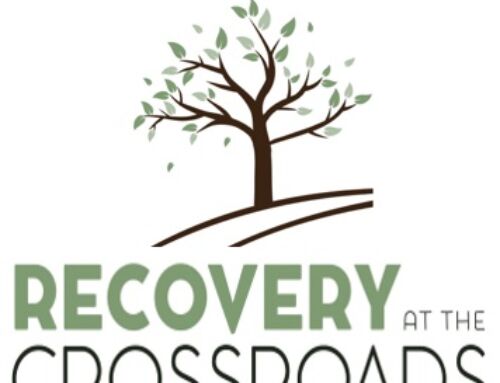Alcoholism, an insidious disease that thrives on secrecy and isolation, can devastate individuals and their families. In the tapestry of Jewish life, the impact is no less profound. Alcoholism affects not only the individual suffering from the disease but also leaves deep scars on the family. This article delves into the effects of alcohol addiction on a Jewish family, exploring the topic from multiple angles—from understanding alcoholism, its impact, and cultural perspectives to recovery.
Understanding Alcoholism
Definition and Stages
Alcoholism, clinically referred to as Alcohol Use Disorder (AUD), is characterized by an individual’s inability to stop or control alcohol despite adverse social, occupational, or health consequences. This chronic, relapsing brain disease can be categorized into three stages—early, middle, and end-stage. The stages depict the progression of the disease from occasional excessive drinking to the inability to function without alcohol. It is crucial to understand that excessive alcohol use is not a failure of will or lack of strength; it is a long-term brain disease that requires appropriate treatment.
Alcohol Abuse Prevalence in the Jewish Community
While the Jewish community has historically had lower rates of alcohol abuse than other ethnic groups, it is not entirely exempt from the issue. Although instances of Jewish alcoholics are indeed lower, they do exist, often obscured by cultural stereotypes and societal expectations. One particular stereotype, “Jews don’t drink,” can create an additional barrier to recognizing and addressing alcohol addiction in Jewish communities.
Furthermore, several studies have challenged the assumption of lower alcoholic rates in the Jewish population. These studies have identified cultural and religious practices, genetic factors, and immigration stressors as some of the unique factors influencing alcohol use within Jewish communities. Therefore, the prevalence of alcohol drinking in Jewish individuals might be more nuanced than traditionally thought, warranting further research and understanding.
The Impact of Alcoholism on Jewish Families

Jewish Cultural Perspectives and Alcohol Dependency
Jewish Traditions and Alcohol
In Jewish religious and cultural practices, alcohol—wine, in particular—plays a significant role. From the Sabbath Kiddush to the four cups of wine at the Passover Seder, wine is often associated with joy and celebration. However, Judaism promotes a balanced approach to drinking, urging moderation and disapproving of drunkenness.
Despite the central role of wine in Jewish ceremonies, Jewish law (halakha) clearly emphasizes moderation and warns against the dangers of excessive drinking. A fundamental Jewish faith principle is “pikuach nefesh,” which prioritizes preserving human life. When alcohol consumption becomes harmful, it directly conflicts with this principle. This religious and cultural perspective can be crucial in raising awareness and preventing alcoholism and drug dependency within the Jewish community.
Dealing with Alcohol Dependence in Jewish Tradition
The Jewish tradition provides a holistic approach to dealing with societal issues, including excessive alcohol consumption. A central Jewish value is “Tikkun Olam,” or repairing the world, which promotes the idea of individuals taking responsibility for their fellow beings and the world around them. This perspective drives the belief that dealing with alcohol dependency is a collective responsibility, not just the problem of the individual or family.
In practice, this can mean building supportive communities, breaking down stigmas around addiction, and providing resources for addiction recovery. Jewish social services organizations, synagogues, and community centers can play a vital role. They can provide education, facilitate open discussions about alcoholism, and be a source of support and guidance for those affected.
The Role of a Jewish Family in Recovery
The journey to recovery is not a solo endeavor—it’s a family affair. The family’s role in recovery is pivotal. Families can significantly aid recovery and help their loved ones return to a healthier life by providing a supportive and nurturing Jewish environment.
Families of Jewish alcoholics often serve as a beacon of hope and a source of strength. Their understanding and patience can create a comforting environment instrumental in recovery. Moreover, families can contribute by educating themselves about alcohol use disorder, which helps them understand what their loved one is going through, develop empathy, and effectively communicate their support. In addition, being actively involved in the recovery process—attending counseling sessions or support group meetings—can reinforce their commitment to their loved one’s journey to sobriety.
Family support is beneficial not just to the person suffering from alcohol use disorder but also to the family itself. It allows the family to heal together, strengthen their bonds, and learn how to establish healthier patterns of interaction. By embracing their pivotal role in recovery, families can catalyze the healing process and contribute towards a brighter, healthier future for their loved ones.
Recovery at the Crossroads: Reclaiming Health, Hope, and Happiness for Your Jewish Family
The effects of alcohol problems on Jewish family life are vast, affecting all members’ emotional, physical, and socio-economic health. But, in the face of this challenge, remember that with appropriate alcohol rehab in New Jersey and the support of loved ones, recovery is indeed possible.
If you or a loved one is silently battling alcoholism, remember it’s okay to ask for help. At Recovery at the Crossroads, we’re here to listen, understand, and provide the support you need. Contact us at (888) 342-3881 or complete our admissions contact form.
Change is possible, and it starts with one phone call. Reach out to our addiction treatment center in New Jersey today. Your family’s healthier, happier future awaits.




